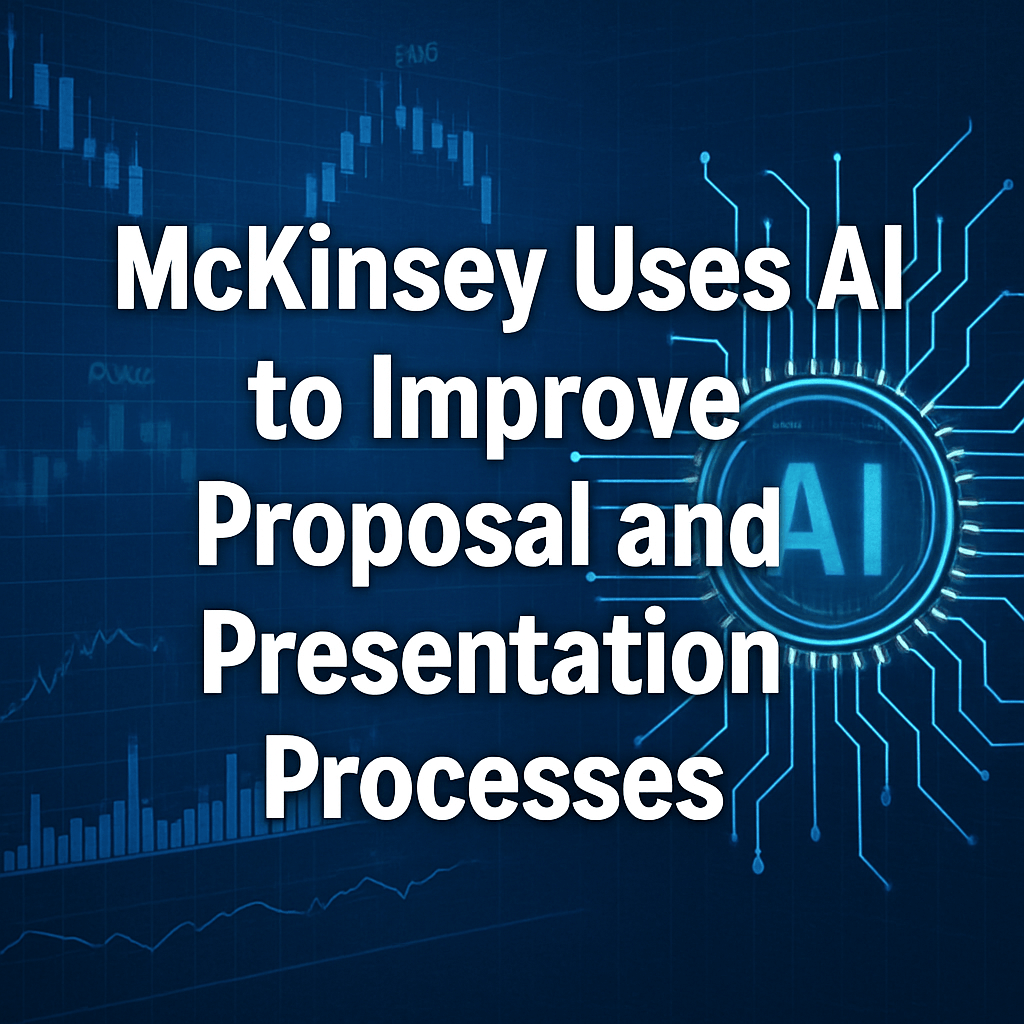McKinsey Uses AI to Improve Proposal and Presentation Processes

Leveraging Generative AI for Efficiency
McKinsey & Co. has increasingly adopted its proprietary generative artificial intelligence platform, named Lilli, to assist consultants in creating proposals and PowerPoint presentations. This technological advancement highlights a substantial shift in the operational dynamics typically associated with consultancy firms, particularly in how junior employees’ tasks are being automated. With Lilli’s capabilities evolving, it can now perform several routine functions, allowing consultants to focus on higher-value tasks.
Confidentiality and Data Input Controls
While employees are familiar with external platforms such as OpenAI’s ChatGPT, McKinsey’s policy restricts the input of confidential client data exclusively to Lilli. This decision underscores the importance of data security and the firm’s commitment to maintaining client confidentiality, a critical aspect of consulting work. According to Kate Smaje, the global leader of technology and AI at McKinsey, these precautions ensure that proprietary methodologies and sensitive information of clients are safeguarded.
Enhanced Features of Lilli
- Automated Slide Creation: Consultants can generate PowerPoint slides by providing Lilli with straightforward prompts, thereby saving significant time and effort.
- Tone of Voice Adjustment Tool: A feature that allows users to modify the tone of written reports to align with specific client expectations or organizational standards.
Adoption Rates and Future Outlook
Since its launch in 2023, Lilli has garnered considerable traction within McKinsey, with over 75% of the firm’s employees utilizing the tool on a monthly basis. Smaje has expressed an optimistic outlook regarding Lilli’s role within consulting teams, viewing it as an integral member that complements human consultants rather than replacing them. According to her:
“Do we need armies of business analysts creating PowerPoints? No, the technology could do that…They’re going to be doing the things that are more valuable to our clients.”
Industry-Wide Trends in AI Adoption
McKinsey is not alone in leveraging AI technology; other consulting firms are also integrating advanced tools into their operations. Bain & Co. employs Sage, a proprietary chat platform built on OpenAI technology, while PwC’s Strategy& unit uses Microsoft’s Copilot for client solutions. The Boston Consulting Group has reported that AI-related advisory services now account for 20% of its revenue, reflecting a significant revenue stream that is expected to grow.
Emerging Competitors and Startups
New ventures like Xavier AI and Perceptis AI—co-founded by former McKinsey consultants—are emerging as serious players in the consultancy space. These firms are capitalizing on the trend towards AI integration, seeking to carve out niches in areas traditionally dominated by established consultancy firms.
Conclusion: The Future of Consultancy in the Age of AI
As McKinsey and its competitors embrace artificial intelligence, the broader consulting landscape is set to undergo a transformation. The operational efficiency gained through technologies like Lilli not only accelerates routine tasks but also empowers consultants to deliver more strategic insights and creative solutions to clients. This shift raises important questions about the evolving role of analysts and consultants, emphasizing a future where human judgment and creativity complement automated solutions, rather than compete with them.
With McKinsey now employing approximately 40,000 staff globally, a decrease from over 45,000 by year-end 2023, the integration of AI could play a critical role in optimizing team structures. As the industry evolves, firms that effectively leverage AI may gain a significant competitive advantage, reshaping client interactions and strategy formulation.